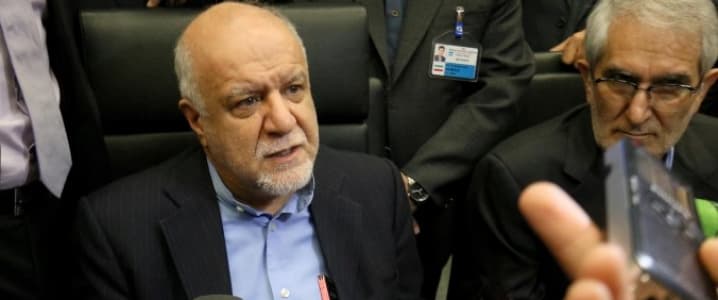The drama surrounding the OPEC production freeze continued over Thanksgiving weekend, as the main players continue to position themselves in advance of Wednesday’s OPEC meeting in Vienna. Markets wait with bated breath, as speculation that an OPEC deal, with possible support from major non-OPEC producers like Russia, could raise oil prices above $50 before the end of the year.
The biggest news of the weekend was the rhetorical maneuvers of Saudi Arabia, with oil minister Khalid al-Falih offering some bearish talk of pulling out of OPEC talks if no general agreement proves possible. Saudi Arabia pulling out of a meeting of non-OPEC members on Monday caused the meeting to be cancelled entirely. Al-Falih’s comments on Sunday also suggested that Saudi production will not be cut from its current near-record high of 10.6 million bpd. Al-Fatih even suggested that with robust demand in 2017, no OPEC production cut will even be necessary, throwing the entire question of what, exactly, OPEC will agree to on Wednesday up in the air.
The Saudi move is primarily a negotiating tactic. From November 2014, when the country’s oil minister famously refused to reduce production in the face of plummeting prices, to April 2016, the Saudi position was one of unflinching resolve to maintain market share. In the summer of 2016 the Saudi position switched: the new oil minister al-Falih and the country’s worsening economic situation increased its desire for a deal. But that desire looked a lot like desperation in September, when an OPEC production freeze was first agreed to, in theory at least. Related: Shell Considering Dumping Its Iraqi Oil Fields
Since then, other OPEC members including Iran and Iraq have thrown the freeze into question, demanding exemptions and exceptions in order to protect their own market share and leave themselves room to expand in the future. Iran, for instance, has been ramping up production since last January and now hopes to push past 4 million bpd. Iraq, practically exempt from OPEC production ceilings since the early 1990s, wants further exemptions, arguing that oil income is needed to fund the war against ISIS. Nigeria, Venezuela and Libya have requested conditional agreements due to economic problems, which in Venezuela have reached catastrophic proportions. There is some hope, reports Argus Media, that Iran and Iraq may moderate their demands, leaving the way open for a deal to freeze production at current levels, if not to cut it completely.
As the Wall Street Journal has noted, the fight over a production agreement has revealed fault lines in the global economy: every nation on earth that depends upon oil exports has been hit hard by the fall in prices and each is desperate to protect itself against future drops in price. Saudi Arabia and other Gulf producers have large cash reserves they can draw on during periods of low prices. Other OPEC producers are not so fortunate, while non-OPEC producers like Russia, where the economy is in recession, and Brazil, where GDP is set to decline by over 3 percent this year, need prices to recover as soon as possible to stave off economic disaster.
It’s the same basic struggle that has prevented OPEC, since it’s foundation in 1960, from operating like an effective cartel. Every member wants high prices, so there’s an incentive to measure production, yet the more a nation produces, the more it earns from its sales of oil abroad. That’s a powerful dis-incentive to enter into any agreement that limits production. Related: Undeterred By Trump Threats, Schlumberger Signs Deal With Iran
OPEC was borne out of a time when the politics of post-colonialism and resource nationalism were strong, and the ties that bound together major producers (resistance to Western corporations and a desire to increase national control over domestic oil industries) were stronger than they are now. Yet even in the 1960s, OPEC could not agree to basic provisions that dictated price or production. It was not until the October War of 1973, which united the Arab members of OPEC, that the cartel was offered an opportunity to dramatically increase prices. Even then, divisions between Saudi Arabia and Iran, the two major producers, prevented a lasting agreement from being formed.
Since the early 1970s, OPEC’s major modus operandi has been responding to crises over which it has no control. The collapse of Iranian production in 1979-1980, the drop in prices in 1985-1986, the Asian and Russian financial crises of the late 1990s and the recession of 2008-2009, all impacted the price of oil and left OPEC scrambling to respond. Rarely have those responses been coordinated or calculated by any force more coherent than independent national interest. The oil market is watching the same drama play out now before the OPEC conference on Wednesday.
In the last year, observers have watched as OPEC announcements and Saudi maneuvers move the market up and down. Twice has the market seen major bumps on the back of OPEC rhetoric, only to fall back down when the group fails to deliver on early promises. Expectations for Wednesday’s meeting shouldn’t be too high, therefore, as OPEC may fail once again.
By Gregory Brew for Oilprice.com
More Top Reads From Oilprice.com:
- Is The Permian 20 Billion Barrel Oil Discovery Real?
- No OPEC Cut Needed, Says Saudi Oil Minister
- Goldman Sachs Turns Bullish On Oil



















.
1) Buy oil futures.
2) Announce a meeting to cut oil production. (Price of oil goes up as suckers buy oil thinking that this time they really mean it.)
3) Sell oil futures. (Take profits because oil has gone up.) Sell short more futures.
4) Hold the meeting. (Of course, all the countries involved will not agree to anything because they all hate each other.)
5) Meeting disintegrates. Oil futures plunge.
6) Cover their short positions in oil futures. (Another profit because they are buying the contracts back at a lower price.)
7) Go to step 1).